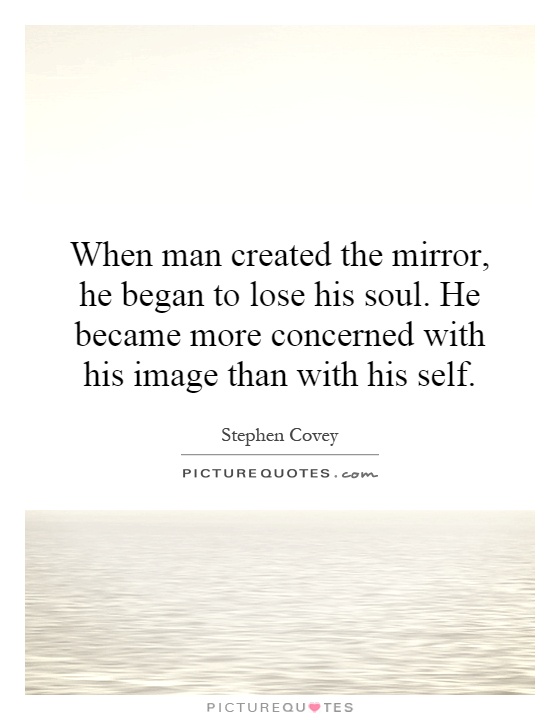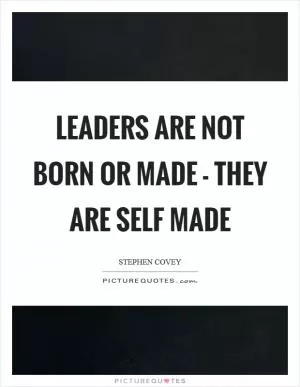When man created the mirror, he began to lose his soul. He became more concerned with his image than with his self

When man created the mirror, he began to lose his soul. He became more concerned with his image than with his self
Stephen Covey, the renowned author of "The 7 Habits of Highly Effective People," emphasizes the importance of self-awareness and self-improvement in order to achieve personal and professional success. In the context of the quote "When man created the mirror, he began to lose his soul. He became more concerned with his image than with his self," Covey's teachings can shed light on the potential dangers of becoming too focused on external appearances and neglecting one's inner self.Covey's first habit, "Be Proactive," encourages individuals to take responsibility for their own actions and choices. By constantly seeking validation and approval from others based on their external image, individuals may lose sight of their true values and beliefs. This can lead to a lack of authenticity and a disconnect from one's inner self. Covey would argue that true fulfillment and success come from aligning one's actions with their core principles and values, rather than seeking validation from external sources.
Furthermore, Covey's second habit, "Begin with the End in Mind," emphasizes the importance of setting clear goals and priorities based on one's values and principles. If individuals are too focused on their external image and how they are perceived by others, they may lose sight of their long-term goals and aspirations. Covey would argue that true success comes from living a purpose-driven life that is aligned with one's core values and beliefs, rather than seeking superficial validation from others.












 Friendship Quotes
Friendship Quotes Love Quotes
Love Quotes Life Quotes
Life Quotes Funny Quotes
Funny Quotes Motivational Quotes
Motivational Quotes Inspirational Quotes
Inspirational Quotes